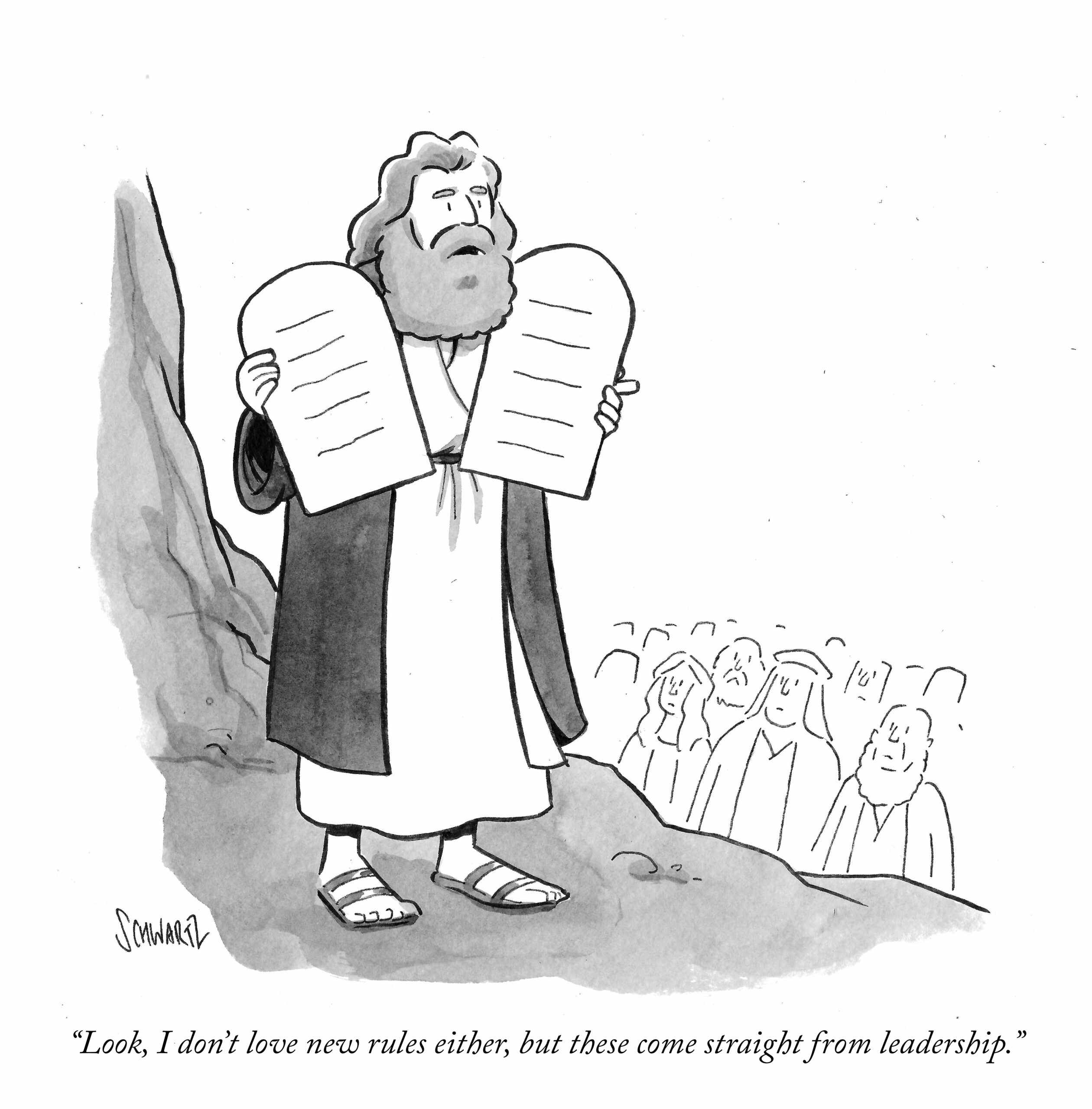Workplace trends
Thailand is betting on digital wallets to fuel economic recovery
Fulfilling one of its election promises, the Thai government has launched a pioneering program to distribute money to low-income households through digital wallets. The plan will see around 50 million Thai nationals receiving $280 each, roughly half of the monthly per capita income. While this move is expected to provide a short-term boost to GDP and household consumption, experts worry about the significant fiscal cost and the lack of long-term solutions for deep-rooted economic problems. The Bank of Thailand is among a few central banks experimenting with central bank digital currencies (CBDCs). While it insists that CBDCs will coexist with physical currency, financial analysts argue that the convenience of digital payments, coupled with the costs and hassles of handling cash, may signal the eventual demise of cash as a primary means of payment.
Google’s monopoly is getting crushed in court
A federal judge has delivered a blow to Google, ruling that the tech giant illegally maintained its search engine monopoly. The 276-page ruling accused Google of stifling competition by paying billions to web browser operators and phone manufacturers to secure its position as the default search engine. In fact, court documents revealed that in 2022 alone, Google paid Apple a staggering $20 billion to maintain its default status on Apple devices. The decision could force Google to alter its business practices, especially as EU regulators announce a renewed investigation into its app store practices. Antitrust experts are hailing the news as a major antitrust victory for the Justice Department in its efforts to curb the power of Silicon Valley’s tech giants.
The AI corner
AI may be sucking the originality out of creative writing
While AI tools may enhance the writing abilities of individuals, they also seem to be hindering creative expression skills, according to a new study published by Science Advances. Researchers asked hundreds of non-professional writers to create short stories using ChatGPT, which were then evaluated by 600 judges who employed a ‘sameness scale’ to assess originality. The findings showed that AI improved writing on an individual level, but it led to far less variation and originality across the pool of writers as a whole. With creative and marketing agencies being some of the earliest adopters of language models for creative tasks, researchers warn that we may be entering an era of stunted originality across the board.
Is Big Tech splurging too much on AI infrastructure?
Big tech industry leaders are starting to express concern about overinvesting in AI. Mark Zuckerberg recently admitted that Meta may have overspent billions on AI initiatives, raising questions about the sustainability of such investments. Similarly, Alphabet’s CEO Sundar Pichai warned that they too have the risk of overcommitting resources to this rapidly evolving technology. While Sequoia partner David Cahn estimates that the tech sector needs to generate roughly $600 billion in annual AI revenue to justify the massive investments made by companies like Meta and Google – a figure that it’s currently far from achieving – many tech experts assert that the greater risk lies in not participating in the AI race at all.
Maximizing the potential of top performers
“Most people don’t leave their jobs, they leave their managers.”
Jason Miller, a highly respected Senior Director at monday.com, has long exemplified this management philosophy by actively investing in the development of his team. Unsurprisingly, his approach has fostered great success – not just for himself but also for those he’s mentored, who often credit him for their own leadership skills and achievements.
And this impact adds up. Gallup reports that 70% of team engagement is dependent on the manager, with half of all surveyed workers leaving due to bad management. Similarly, a recent LinkedIn poll revealed that a staggering 82% of respondents have left a job to get away from their managers. These numbers paint a clear picture: retaining top talent, which is crucial for building a high-performing team, hinges on strong leadership.
So, how can managers leverage their influence to maximize employee engagement and unleash the full potential of top performers?
Here are some of Jason’s suggestions:
Align expectations
Whenever someone new joins his team, Jason always makes sure to emphasize that his goal is to help his employees grow and improve. He openly acknowledges that he doesn’t expect them to stay on his team forever, which is why his mission, as their leader, is to make sure that by the time they leave, they are better than they were when they arrived and that they don’t simply make a lateral move. His logic? Setting this expectation with your team members from the get-go helps them feel confident that you have their backs, and that the challenges you offer them to take on as well as the feedback you give will always have the ultimate goal of empowering them to reach their full potential.
Keep your team challenged
When work becomes repetitive and easy, employees start to feel like they’ve reached their ceiling and may begin to lose interest. That’s why Jason always seeks out opportunities to excite top performers and keep work feeling challenging and new. While it’s often assumed that employees are always looking for promotions and the chance to move up in the ranks, research suggests that more often, they simply want the chance to feel challenged and to gain new skills. In fact, an analysis by MIT Sloan Review found that lateral career opportunities are 12x more predictive of employee retention than promotions. So, as you come to understand your employees’ professional weaknesses, keep an eye out for projects or initiatives that will push them out of their comfort zones and help them develop their knowledge and expertise.
Give intentional feedback
When you manage multiple different people, it’s crucial to take the time to understand each of their strengths and weaknesses. This way, you can actually help them excel by giving them timely, honest, and authentic feedback. When Jason identifies an opportunity for his employees to improve, he’ll often start his feedback by asking, “Can I be very direct with you?” Then, he’ll reiterate his goals in sharing this feedback, which is to align on an area for growth, to set the right tone for the conversation and establish an environment of transparency.
And remember – simply saying “Good job” or “I think you could have handled that better” isn’t very helpful because those kinds of remarks fail to give team members the direction and insights needed to improve. Instead, try to spot specific areas in which your team members are performing great and where there seem to be gaps and then relay that information to them in a clear and direct way.
Give meaningful recognition
“Earlier in my career, I got a private message, out of the blue, from my CEO that was very meaningful and showed she noticed. That always stuck with me and is something I do now, as a more senior person at the company. Because I know that making people feel like you see the small things too and giving recognition for something outside of the norm can go a long way.”
Even though he now oversees so many people across his department, Jason still goes out of his way to reach out to high-performing employees to let them know that he sees and appreciates the small things they do too. Achievers research backs this approach, with 74% of surveyed workers mentioning recognition as a top factor that would keep them at their current company. Additionally, in a Bonusly and SurveyMonkey study, 63% of employees who frequently receive personal recognition at their organization said that they were unlikely to look for a new job. These types of acknowledgments help convey to team members that they are doing what they should be doing and that you, as their leader, recognize the value they bring. All of these are key to ensuring your employees feel motivated and excited to stick around.
Water cooler chatter
Aerosmith has retired from touring due to permanent damage to Steven Tyler’s voice. After touring for 54 years, the iconic band behind hits like “Dream On” and “Sweet Emotion” is saying goodbye to the stage.
Coca-Cola has to pay $6 billion in IRS back taxes. The dispute reached court back in 2015, shortly after the company claimed to have notified the IRS that it owed $3.3 billion more in federal taxes and interest. The beverage giant is appealing the case and insisting that the IRS misinterpreted the applicable regulations.
Question of the week
Last week’s answer: Over 90,000
This week’s question: Which company started the concept of a 9-to-5 workday?
Just for laughs

Leadership guidelines, Moses
Don’t miss more quality content!

